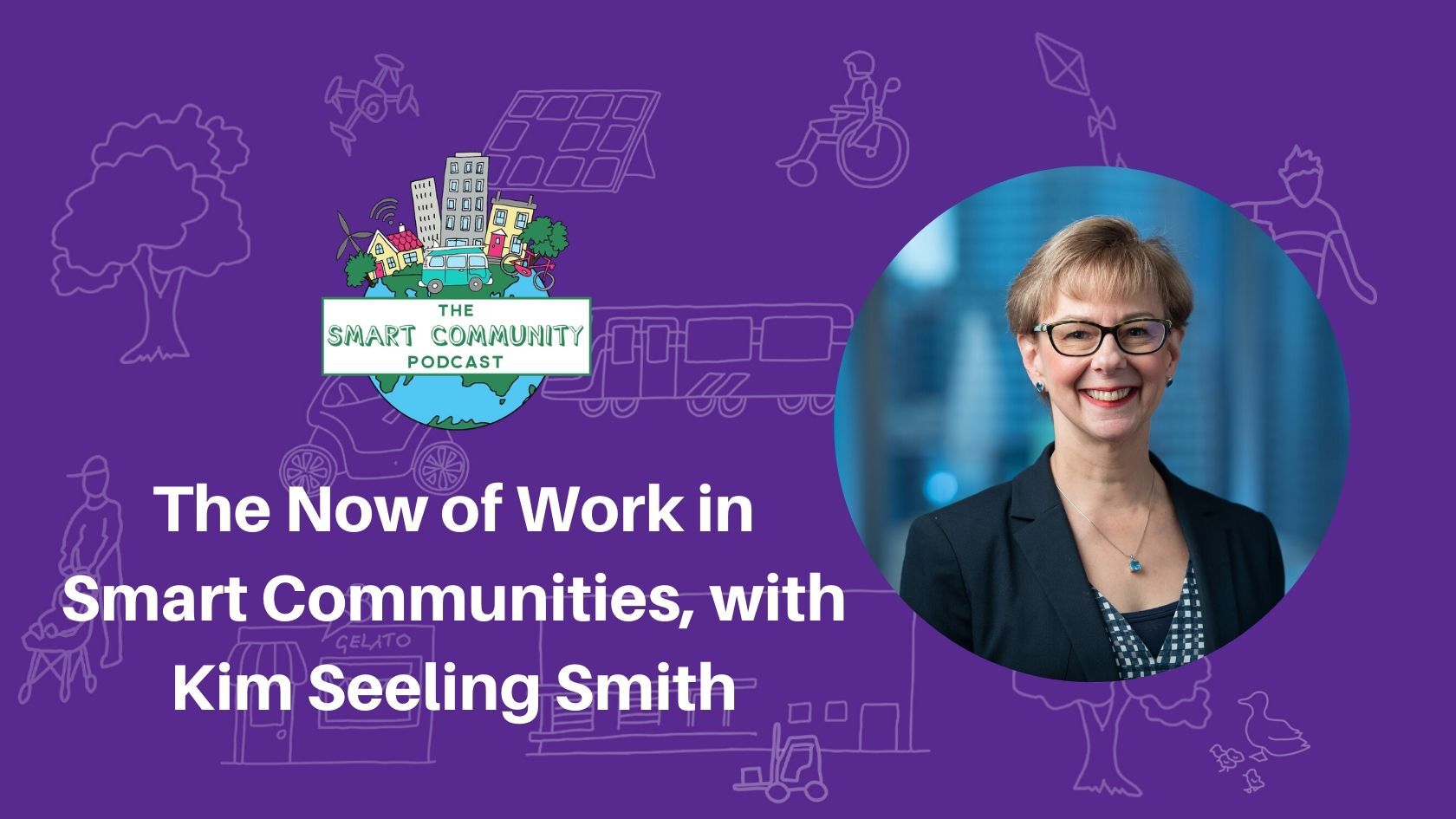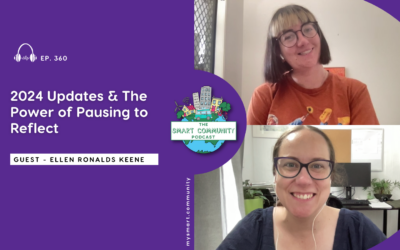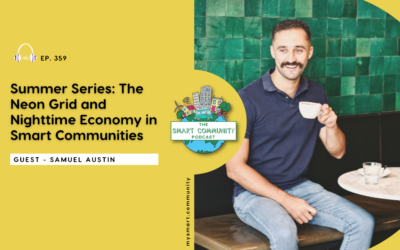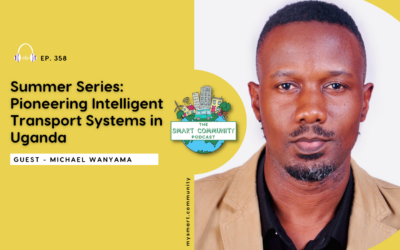In this episode of the Smart Community Podcast, I have a fantastic conversation with Kim Seeling Smith, the CEO of Ignite Global. Kim used to call herself a ‘Future of Work’ expert, but these days she says the future has arrived so she’s become a ‘Now of Work’ expert. This is another audio from the YouTube series I’ve been doing catching up with previous podcast guests and although Kim is not a previous podcast guest she is a good friend of the Smart Community Podcast.
In this episode, Kim and I discuss her background and her work, and how it’s really accelerated with the current crisis. She tells us about her research on what people are learning from this COVID work-from-home experiment, and why we all need to take this disruption seriously, learn from it, and be as prepared as we can be for ongoing disruptions into the future. We explore the relationship between COVID, under- and unemployment, and the critical skills shortage, as well as what the workplace will look like post-COVID and what managers in particular have to improve in order to be effective in the workplace of the next decade. Kim tells us about her white paper on the difference between companies that fail, those that survive and those that thrive after crises and recessions, as well as how she has reset her business during this time. We finish our chat discussing what employees and employers should be thinking about now that the Now of Work has arrived. As this was a video and not a regular episode of the podcast, Kim didn’t tell us where to connect with her but you can find her on LinkedIn or at igniteglobal.com As always we hope you enjoy listening to this episode as much as we enjoyed making it.
Listen here:
What we cover in this episode:
- Kim’s background, her work and how it’s accelerated with the COVID-19 crisis
- What Kim’s research shows about what people are learning from this work-from-home experiment
- Why we need to take this disruption seriously, learn from it, and be as prepared as we can be for ongoing disruptions in the future
- The benefits and winners from this global disruption
- The relationship between COVID, under- and unemployment, and the critical skills shortage
- What the workplace and the world of work look like post-COVID
- What managers have to improve upon in order to be effective in the workplace in the next decade
- Non-linear career paths and alternatives to the Industrial model that most hiring and management processes and practices still follow
- Kim’s WhitePaper findings on what makes the difference between companies who don’t survive, companies who barely survive and companies who thrive
- How Kim has reset her business during this crisis and projects she’s currently working on
- The opportunities for Australia at this time
- What you should be thinking about right now as an employee and an employer/manager standpoint
Quotes:
“Until March 13 2020, I considered myself a Future of Work expert. But the future of work arrived at about 5pm on that day when everybody downed tools and started the world’s largest work-from-home experiment. So I now call myself a Now of Work expert because the Future of Work has arrived!”
“We’ll definitely see more working from home. We’re not going back. The research that I’m doing personally is pointing to a blended workplace…Overwhelmingly we are seeing some really positive things come out of this. The managers who have learned to manage by output versus hours in are finding huge productivity gains, [some] people are finding that they’re actually more relaxed working from home. So what I suspect is that we’ll have a blended workplace and especially as we come out of lockdown.”
“Trust is the currency of the post-COVID world. Managers are going to have to learn to trust their employees. And the employees have for the most part really, really taken the lead improving how productive they can be.”
“Businesses are no longer going to have the luxury of good enough is good enough. Good enough is not good enough. It has to be exceptional customer service, the quality of your products and services, they have to be exceptional. And the only way to be exceptional is to have an exceptional workforce, which means learning to hire well.”
“We’ve got to break free from those shackles of not only pre-COVID thinking but pre-21st century thinking, because a lot of our processes and practices we use to hire and manage staff date back to the Industrial Revolution, and quite frankly, have not been updated significantly since then.”
“[Cisco] this is an example of a company that—right after the downturn, and after they’ve secured their assets and secured their people and have done everything that they needed to do to survive—started thinking strategically about what do we need to do? So what do organisations need to do? I think that they need to do two things. Number one: figure out what the new normal looks like, and this is a guessing game because nobody really knows…Number two is taking a really hard look at themselves. And after the shock of COVID what cracks were exposed in the organisational structure, in the communication structure, in the financial structure, in their business continuity plans, their crisis recovery plans, in their management, in their staff, everything…So between the two of those tracking and pivoting with the new normal and cementing the cracks of what’s gone wrong, they can set themselves up to actually thrive, post the recovery instead of just surviving.”
“I’m hoping that the government and organisations and educational institutions take resilience seriously, because we have got to be resilient, we have got to be adaptable and open to change. If we’re not, we’re not going to make it through this next decade. We’re just not.”
“From a management standpoint, how do we build that currency of trust? How do we empower our people so that they are able to perform at their best, give them the autonomy to use the very strengths that we hopefully hired them for to achieve the outcomes and objectives? So first of all, we need to make sure that they have outcome based objectives with measurable results…and then don’t lose that [human connection] side of things.”
Links:
Kim’s whitepaper – link coming soon. In the meantime, please email Kim@igniteglobal.com for a copy
Graph of waves from disruption to recovery [INSERT IMAGE HERE]
Connect:
Find the full show notes at: www.mysmart.community
Connect with Kim via LinkedIn or at igniteglobal.com
Connect with me via email: hello@mysmart.community
Connect with My Smart Community via LinkedIn or Twitter and watch on YouTube
The Smart Community Podcast is produced by Perk Digital.






0 Comments